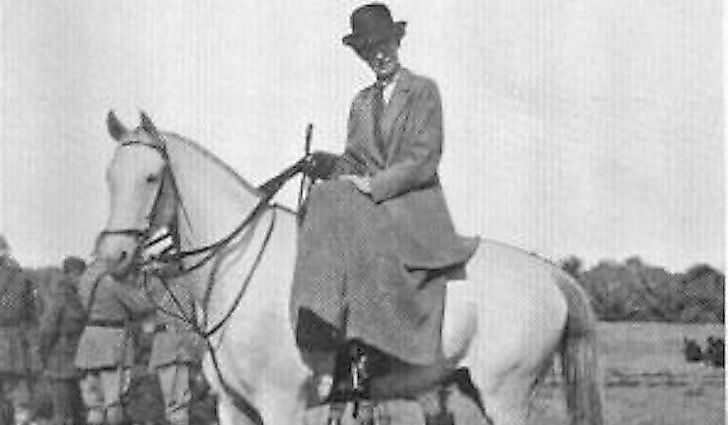Gertrude Bell: Explorers of the World

5. Early Life
Gertrude Bell was born on July 14th, 1868 in England. She was educated at Oxford, where she excelled in her studies and garnered a degree in Modern History. This exceptional British lady had a long line of accomplishments to her name. One would imagine that belonging to a wealthy family, she would be happy living a life of luxury, instead she concerning herself with political matters in the Middle East. One of her roles in that part of the world was as an official diplomat for the British Administration. This may have been her family heritage, however, as her father was a member of Parliament and her uncle was British Ambassador to Iran.
4. Career
Gertrude Bell was also listed as an explorer and archaeologist among her many achieved duties. One of Bell's greatest personal passions was mountaineering, which probably was one of the reasons as to why she ultimately became an explorer. As a British political officer in the Middle East, largely unexplored by the West at that time, exploration was a necessity in her work. Exploring Iraq and Saudi Arabia gave her first-hand knowledge of the tribes and geography of these important nations, and Bell didn't meet much opposition in her explorations throughout the Middle East by natives. In fact, the tribesmen there came to deeply respect her, treating her as an essential equal. Today, her photograph still hangs in several private diplomatic clubs in Iraq.
3. Discoveries
Bell's contributions to the security and peace in the Middle East are too innumerable to list. In Iraq, where Bell was most respected and loved, officially she helped create its national borders and also helped the nation chose its king. She also helped in establishing the National Museum of Iraq, to serve as an example that important antiquities appreciated by the West should nonetheless remain in their country of origin. Another of her early major accomplishments was assisting T.E. Lawrence in making alliances with many of the Arab Tribes in the Middle East. Even today, the extent and significance of Bell's efforts are felt in the political centers of this part of the world. As a writer, her exploration notes are still relevant references for policymaking in the contemporary world.
2. Challenges
Despite her widespread successes, Gertrude Bell faced many setbacks in her career, but she was not one to surrender to such pitfalls. Coming from a political family, Bell could pull strings as needed, and had the financial resources to sustain her with the support of her wealthy family. The Iraq of her day was composed of fragmented tribes, and her work involved in the creation of a stable government was an arduous one. Bell faced problems from the many warring local Muslim sects as well. In her own words about the clergy in Iraq, “sitting in an atmosphere which reeks of antiquity and is so thick with the dust of ages that you can't see through it - nor can they”. Ultimately, however, her dedication and fervor seemed to always overcome the struggles.
1. Death and Legacy
In her final years, Bell kept herself busy in archaeology, but she slowly sank into depression and illness. Finally, on July 12th, 1926, Gertrude Bell passed away. Official reports said that she died as a result of archaeological work in the grueling heat of the desert. However, some say that she had accidentally overdosed on sleeping pills. She thrived as an explorer, linguist, writer, diplomat, and, some say, also dabbled in espionage for the British military. The legacy she left can be seen in her vast correspondence to family and friends. Her books and writings are still valued today to help understand historic Middle Eastern political dynamics, and historians find her extraordinary still.











